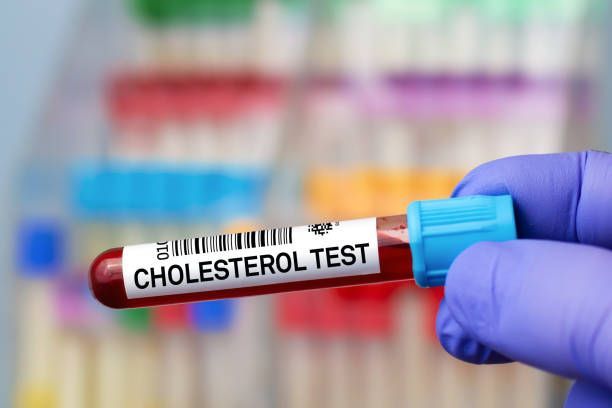Hypothyroidism Explained: Discover the Symptoms, Causes, and Treatments
Most people have heard of the condition hypothyroidism, but you may be unaware of what it truly is and how it presents. Hypothyroidism is a common yet often misunderstood condition that affects millions of people worldwide. It's characterized by an underactive thyroid gland and can cause many symptoms that significantly impact daily life.
At UrgiClinic Urgent Care, we believe in the importance of education and proactive healthcare. This blog aims to discuss the causes, symptoms, and management of hypothyroidism. Whether you suspect you have hypothyroidism or simply want to learn more, our guide will help you navigate this condition and take control of your health. If you have any concerns about your thyroid health, always talk to a healthcare provider.
Understanding Hypothyroidism
Hypothyroidism, or having an underactive thyroid, occurs when the thyroid gland can't make enough thyroid hormones to meet the body's needs. The thyroid is a small butterfly-shaped gland located in the lower neck and is responsible for regulating metabolism, energy production, and overall hormonal balance. When thyroid hormone levels such as T3 and T4 are insufficient, it can lead to a slowdown in bodily functions.
There are three primary types of hypothyroidism: primary, secondary, and tertiary. Primary hypothyroidism is the most common form, resulting from direct issues with the thyroid gland itself, such as Hashimoto's thyroiditis or iodine deficiency. Secondary hypothyroidism occurs due to problems with the pituitary gland, which fails to stimulate the thyroid adequately. Tertiary hypothyroidism is the result of hypothalamic dysfunction, affecting the excretion of hormones that regulate the pituitary gland. Understanding these types helps in identifying the root cause and appropriate treatment for hypothyroidism.
Symptoms of Hypothyroidism
Hypothyroidism manifests through a variety of symptoms, often making it challenging to diagnose due to its subtle and gradual onset. Recognizing and understanding these symptoms is crucial for seeking timely medical advice and managing the condition effectively. If you’re experiencing symptoms of hypothyroidism, it’s important to visit your local urgent care clinic or visit a healthcare provider.
Common Symptoms
● Persistent Fatigue: Constant tiredness that doesn't improve with rest.
● Weight Gain: Unexplained weight increase despite a stable diet and exercise routine.
● Cold Sensitivity: Unusual sensitivity to cold temperatures.
● Constipation: Infrequent or difficult bowel movements.
● Dry Skin and Hair Loss: Noticeable changes in skin texture and increased hair shedding.
● Puffy Face: Swelling, particularly around the eyes.
● Mental Health Issues: Depression, memory problems, and difficulty concentrating.
Less Common Symptoms
● Hoarseness: Changes in voice quality.
● Muscle Weakness and Joint Pain: Decreased muscle strength and joint discomfort.
● Elevated Cholesterol Levels: Higher than normal cholesterol readings.
● Menstrual Irregularities and Fertility Issues: Changes in menstrual cycle and difficulties with conception in women.
All these symptoms can negatively impact daily activities and quality of life, often being mistaken for signs of aging or other health conditions. If you experience any combination of these symptoms, consulting urgent care services or your physician for evaluation and potential testing is essential for proper diagnosis and treatment.
Causes and Risk Factors
Hypothyroidism can arise from several causes and is influenced by various risk factors. Primary causes include autoimmune disorders like Hashimoto's thyroiditis, where your immune system attacks your own thyroid gland, iodine deficiency, thyroid surgery, and radiation therapy.
Risk factors that increase the chance of contracting hypothyroidism include:
● Age (being over 60).
● Gender (women are more prone).
● A family history of thyroid disease.
● The presence of other autoimmune diseases such as type 1 diabetes or rheumatoid arthritis.
Certain medications like lithium can also contribute to thyroid dysfunction. Recognizing these causes and risk factors can help with early detection and effective management.
Diagnosing Hypothyroid Conditions
Identifying the presence of hypothyroidism involves a combination of medical history, physical examination, and specific diagnostic tests. A healthcare provider should first take a full medical history and discuss symptoms such as fatigue, weight gain, and sensitivity to cold. A physical examination may reveal signs like dry skin, swelling, and slowed heart rate, all indicative of an underactive thyroid.
Definitive Diagnostic Tests
After your physical exam, your provider can run diagnostic tests to confirm the activity of your thyroid gland. These may include:
● Blood Tests: The primary method for diagnosing hypothyroidism is measuring the levels of Thyroid Stimulating Hormone (TSH) and thyroid hormones (T3 and T4) in the blood. Elevated TSH and low T4 levels typically confirm the diagnosis.
● Antibody Tests: To identify autoimmune causes, such as Hashimoto's thyroiditis, tests may be conducted to detect thyroid antibodies.
● Imaging Tests: In some cases, an ultrasound of the thyroid gland might be performed to check for structural abnormalities.
After your diagnosis of hypothyroidism and identifying the source, your healthcare provider will discuss treatment options with you.
Hypothyroid Treatment Options
Treating hypothyroidism primarily involves hormone replacement therapy to restore normal thyroid hormone levels. The most common medication is levothyroxine, a synthetic form of thyroxine (T4), taken daily to normalize hormone levels. Dosage adjustments are made based on regular blood tests to ensure effectiveness and avoid over- or under-treatment.
Lifestyle changes, such as eating food rich in iodine and regular exercise, can support overall health and well-being. Managing your stress levels and getting adequate hours of sleep are also beneficial. Finally, regular follow-ups with a healthcare team are essential to monitor the condition and adjust treatment as necessary, promoting optimal management of hypothyroidism.
Check Your Thyroid Health Today
Understanding hypothyroidism is vital in managing this common condition, as it helps you understand why your metabolism isn't running properly. With appropriate diagnosis and treatment, individuals can effectively control symptoms and lead healthy lives.
If you experience symptoms like persistent fatigue, weight gain, or sensitivity to cold, it's essential to seek medical advice. At UrgiClinic Urgent Care, our dedicated urgent care center providers are here to help you with a comprehensive evaluation and personalized treatment plans. Don’t let hypothyroidism disrupt your life. Schedule an appointment with UrgiClinic Urgent Care today and take the first step towards better thyroid health.













